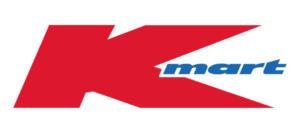
(1) Strategic alignment of gender equality with business priorities
(3) Gender pay equity (5) Support for caring
(6) Mainstreaming flexible working (11) Recruitment, Selection and Promotion
(12) Talent management and succession planning
Context |
Kmart’s mission is to make “everyday living brighter” for our customers and from a team member perspective to make sure Kmart is “A great place to work and grow together “. Achieving gender balance is both aligned with and contributes to achieving both objectives. In 2016 women reflected over half of Kmart’s customer base yet made up just 28 percent of Kmart’s Senior Retail Operations Leadership Team (Store Manager, Zone Manager and State Manager positions). Whilst women are Kmart’s primary customer, at the time they were not meaningfully represented in the operational commercial execution and strategic decision making in the operational retail business.
At Kmart, our Store and Zone Managers are regularly and primarily selected and promoted into leadership positions from our internal talent pool and through structured succession planning. Team members are provided with opportunities to take part in training programs and leadership courses which act as pathways to Line Manager and Store Manager positions. In 2016 women represented 68 percent of Line Managers but only 33 percent of Store Managers and just 23 percent of Zone Managers. it was evident that female Line Managers were not progressing beyond Line Management positions into more senior store operations roles at the same rate as their male counterparts. Kmart explored the commercial, economic, and social benefits of diverse and inclusive teams, from better decision-making through to innovation. Kmart took the approach of shifting its thinking from gender balance being the ‘right thing to do’, to the ‘smart thing to do’. Kmart conducted listening sessions with team members to formulate a number of actions and in 2018 took part in a broader gender audit to evolve and grow the gender equity strategy. |
Action |
|
Result |
|





















